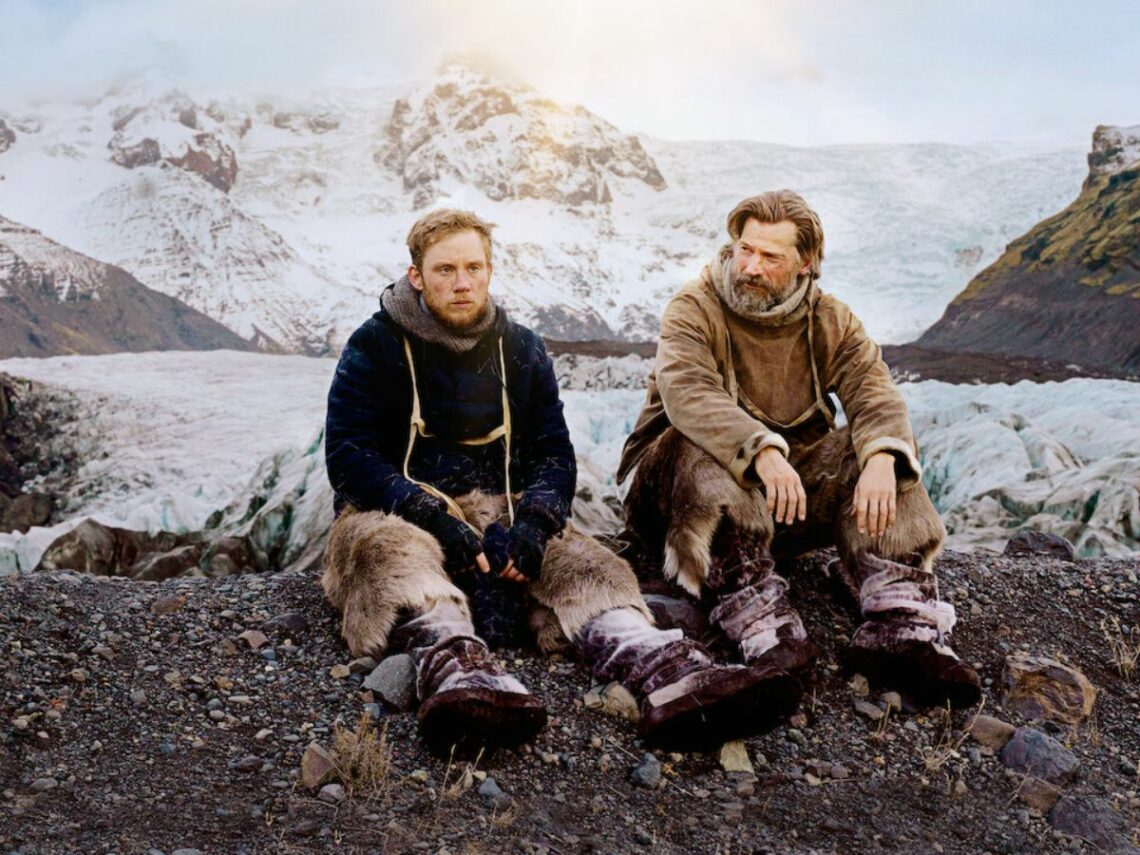
‘Against the Ice’ explained: How do Mikkelsen and Iversen survive?
Against the Ice is a chilling survival thriller like nothing else currently on Netflix. Danish director Peter Flinth helms the movie, which helps bring to life its remarkable true story concerning the fate of two Danes in the remote tundra of northern Greenland.
Ejner Mikkelsen and Iver Iversen, who is ably played by Joe Cole of Peaky Blinders fame, are out to recover the findings of the famous Denmark Expedition. That mission had proven disastrous for several of its crew members the previous year, and Mikkelsen and Iversen must struggle to avoid the same fate
The two explorers aren’t just battling against sub-zero temperatures, snowstorms and the unpredictable Greenland ice. They’re limited by the equipment available to them at the time of their expedition, which took place all the way back in 1909.
Not to mention a hungry polar bear, which kills some of their husky dogs before almost mauling Mikkelsen to death until Iversen shoots it. Fatally wounded, it lands on top of Mikkelsen, pushing him through the ice deep into the freezing Arctic waters.
To make matters even worse, Mikkelsen is strapped to the rope of the sled he and Iversen are using for their journey. As he plunges deeper into the sea, he drags the full weight of their tent and supplies towards the hole in the ice. If it drops, he’ll seal his own fate, as well as leaving Iversen to his without food or shelter in the frozen wilderness. Iversen gets there just in time to pull both the sled and Mikkelsen to safety.
And that’s the worst of it?
Once they find what they came looking for three months into their journey, the hard part of the expedition seems behind the two explorers. If only. When they return to their starting point on the coast of Shannon Island, they find their ship has been taken apart and turned into a makeshift hut, which they find abandoned. Their fellow crew members have left them for dead and returned to Denmark for the winter.
Without a way of getting home themselves, Mikkelsen and Iversen are stranded in the cabin, with limited food and fuel supplies, only makeshift forms of heating, and no means of communicating with the outside world.
Several months into their isolation, they venture out of their shelter to collect the records they stored in a strategically placed rock formation. When they return, a cruel twist of fate awaits them. According to a handwritten note they discover, a search party has been to the cabin but left again, since it found “no sign” of their survival. “We should have left a fucking note!” Mikkelsen bemoans.
Later, having spent more than a year alone without being found, the two joke about the possibility of having to eat each other over a meagre Christmas dinner. The jokes soon turn to genuine hostility, as cabin fever besets Mikkelsen. He becomes convinced that Iversen is sleeping with his partner, of whom he now has visions. He tries to kill him, before attempting to turn a gun on himself.
So are they rescued?
There’s time for one last encounter with a polar bear, before a miracle arrives. 865 days into their trip to the coldest place in the northern hemisphere, most of which involved a lonely, hopeless existence in their cabin, a party of seafarers finally reaches them.
The Council President of Denmark Niels Neergaard, played by Charles Dance, receives a telegram reading, “Ejnar Mikkelsen and Iver Iversen rescued. Aboard the Sea Flower on way back to Copenhagen with proof that Greenland is one.” This message implies that the two explorers have been found by a rescue party sent by the Danish government.
That outcome plays into the nationalist sentiments of the film, which proudly asserts that Mikkelsen’s recovery of documents which proved Greenland is a single island ensured Denmark’s claim to the entire land mass. In real life, the rescue of Mikkelsen and Iversen was an even more extraordinary stroke of fortune. The crew of a Norwegian whaling ship spotted their cabin by pure chance, and went to investigate.
This happenstance could have made for an even more remarkable ending to the movie, emphasising both the sheer improbability of the two men’s survival and the cooperative spirit at the heart of any human endeavour.. But it wouldn’t have done Denmark quite as proud.